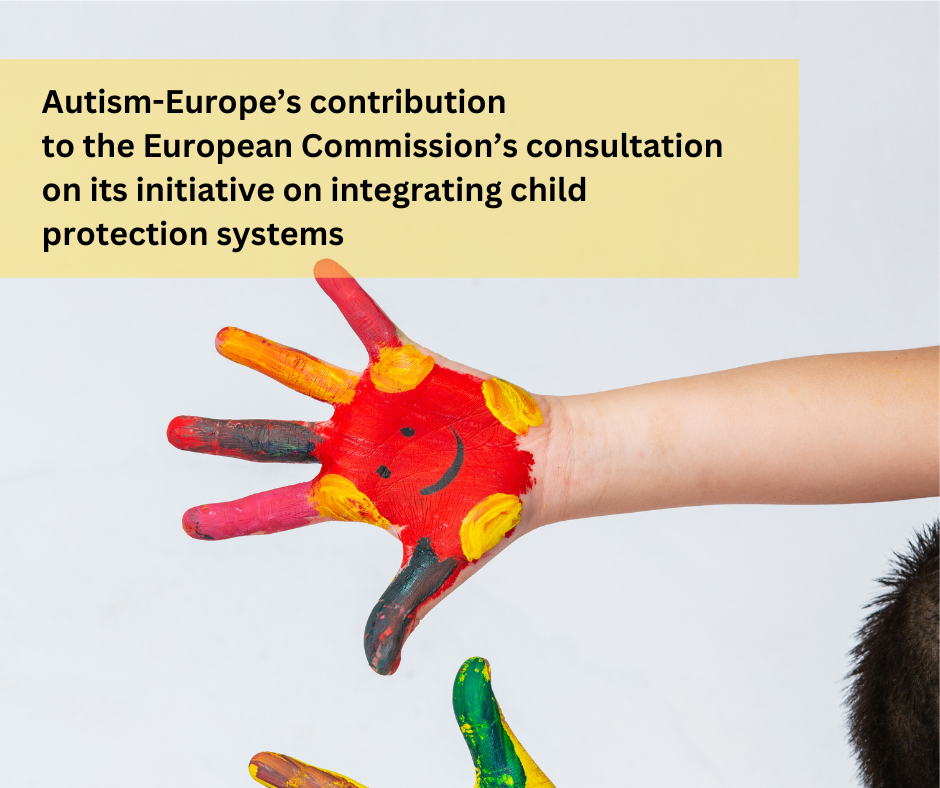
Autism-Europe (AE) has recently submitted a response to a European Commission’s consultation on its initiative to support the development and strengthening of integrated child protection systems in the European Union (EU). Aligning with other NGOs, AE calls for EU action that includes children with disabilities in these integrated child protection systems.
According to the World Health Organization, in Europe 44 million children suffer from physical abuse, 18 million from sexual abuse, and 700 children are murdered every year. Children have paid a heavy toll due to COVID-19, and children are often the first victims of wars and disasters. Besides depriving children of safe and happy lives, violence against children also weighs heavily on economies around the world: it bears costs of up to 8% of global GDP.
In this context, this year the European Commission launched an initiative on integrating child protection systems in the European Union (EU), aiming at issuing recommendations to encourage all relevant authorities and services to work together in a holistic way within the EU Strategy on the Rights of the Child. The initiative seeks to strengthen child protection systems by avoiding silos and gaps across the EU and focusing on children’s needs. It is also intended to present how to better use existing EU tools (laws, policies, funding) to make child protection systems more integrated and robust.
Autism-Europe (AE) submitted its feedback on this initiative within its public consultation period between 14th July and 20th October 2023. AE aligns itself with the European Disability Forum (EDF) when calling for EU action on integrated child protection systems that include children with disabilities. The systemic violence children with disabilities are subjected to hinders their development and puts them at risk. Institutionalisation of children with disabilities significantly increases their risk of abuse and severe disciplining (including corporal punishment and restraint), as well as cases of forced sterilisation, which is still legal to inflict upon minors in three EU Member States.
Therefore, AE welcomes the European Commission’s initiative in line with Article 16 on freedom from exploitation, violence and abuse, and Article 7 on children with disabilities of the United Nations’ Convention on the Rights of Persons with Disabilities (UNCRPD). Autistic children are particularly in need of such initiative because they are more likely to be at risk of abuse and violence – a study from Sweden found autistic children and adolescents are a group particularly targeted for sexual abuse. Autistic children are also more likely to be bullied (including through cyberbullying), compared not only to non-autistic children but also to children with other disabilities. Autistic children, and especially those with mental issues, are also disproportionally affected by suicide.
Besides, AE highlights the occurrences of abusive placements of autistic children in the child protection system (e.g., Affaire Rachel in France), notably due to a lack of understanding of autism and how it manifests itself. There is a need for autism-specific training of professionals working in the field of child protection, law enforcement, healthcare, education, etc.
AE calls on the European Commission and the EU Member States to pay particular attention to these different interrelated issues and the support needs of autistic people.